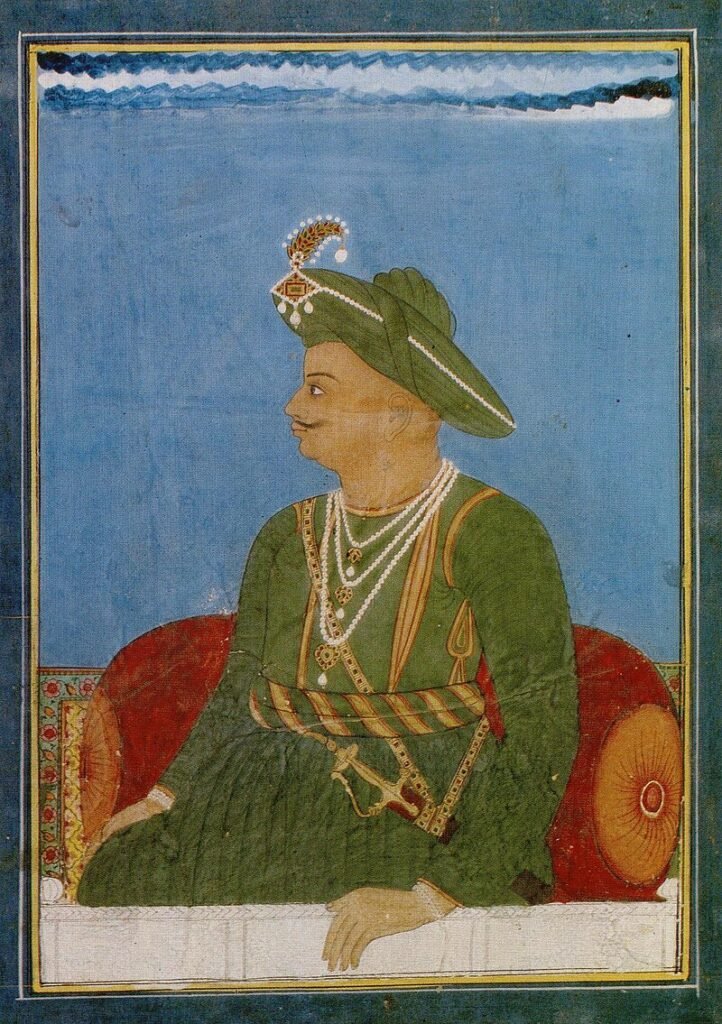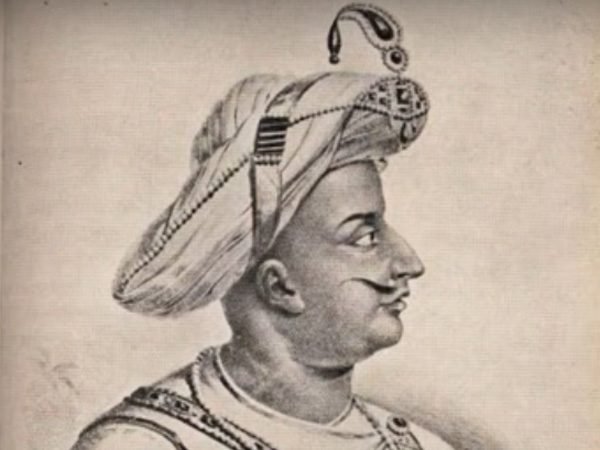Tipu Sultan, often referred to as the “Tiger of Mysore,” is one of the most controversial and polarizing figures in Indian history. For some, he is a valiant freedom fighter who resisted British colonialism with unmatched courage and innovation. For others, he is seen as a tyrant who committed religious atrocities and forced conversions. This dichotomy has made Tipu Sultan a figure of heated debate in political, historical, and public discourse, especially in contemporary India.
In this article, we will dive into the life of Tipu Sultan, the facts of his reign, his accomplishments, the controversies surrounding him, and how historical narratives have turned him into a symbol of both pride and division.
Who Was Tipu Sultan?
Tipu Sultan was born in 1751 in Devanahalli, near present-day Bengaluru, Karnataka. He was the eldest son of Hyder Ali, the Sultan of Mysore and a formidable military leader who rose from humble origins. Tipu succeeded his father as the ruler of the Kingdom of Mysore in 1782.
During his reign (1782–1799), Tipu Sultan was known for:
- His resistance against British East India Company
- Modernizing his military with European technology
- Promoting the use of rocket artillery
- His administrative reforms and economic policies
- Patronage of science, arts, and technology
Despite these contributions, his legacy is mired in controversy due to conflicting records and the political lens through which his rule has been interpreted.

Accomplishments and Reforms
1. Military Innovations
Tipu Sultan is often credited with being one of the first Indian rulers to understand the importance of modern military strategy and technology.
- Rocket Warfare: He developed iron-cased rockets that were used effectively in battles, especially during the Anglo-Mysore Wars.
- European Training: Tipu hired French military advisors to train his army in European-style warfare.
- Fortification and Navy: He strengthened the coastal navy and built fortresses, anticipating British expansion.
2. Resistance Against the British
Tipu was arguably one of the fiercest Indian opponents of British colonization.
- He fought four Anglo-Mysore Wars against the British East India Company.
- He allied with the French, Marathas, and the Nizam of Hyderabad at different times to fight the British.
- Tipu refused to submit or sign treaties that compromised Mysore’s sovereignty until he was killed in battle in 1799.
3. Economic and Administrative Reforms
- Introduced new coinage system and state-controlled trade.
- Promoted agriculture, silk production, and foreign commerce.
- Implemented land revenue reforms and improved irrigation systems.
4. Patron of Science and Technology
Tipu was known for his curiosity and patronage of scientific innovations.
- He corresponded with French revolutionaries and expressed interest in Jacobin ideals.
- Established a clock-making and rocket factory.
- Sent embassies to France, Ottoman Empire, and Afghanistan.
Controversies and Criticism
While Tipu’s contributions to military and administrative fields are well acknowledged, his religious policies and treatment of non-Muslims have drawn sharp criticism. These controversial aspects have made him a divisive figure in Indian historiography.
1. Religious Intolerance
One of the primary criticisms of Tipu Sultan revolves around his alleged religious intolerance, especially towards Hindus and Christians.
- Destruction of Temples: British and local accounts allege that Tipu destroyed several temples and churches. Notably, the Sri Ranganathaswamy Temple in Srirangapatna was reportedly spared and even patronized by him, showing inconsistency in policies.
- Forced Conversions: Tipu has been accused of forcibly converting thousands of Hindus and Christians, particularly during his campaigns in Kerala, Kodagu (Coorg), and Mangalore.
- A letter attributed to Tipu reads: “With the grace of Prophet Muhammad and blessings of Allah, 40,000 Hindus were converted to Islam in Coorg.”
- In Mangalore, it is alleged that over 60,000 Catholics were imprisoned and many forced to convert.
- Mass Killings: During his campaigns in Kerala (Malabar), Tipu is alleged to have committed mass killings and destruction.
Contested Views: Many modern historians argue that these actions were political rather than religious, as Tipu also employed Hindus in high administrative and military posts and donated to some Hindu temples.
2. Relations with the French and Islamization
Tipu’s closeness with the French revolutionaries raised eyebrows:
- He planted a “Tree of Liberty” in Srirangapatna.
- He aligned with the French Revolution and even called himself a “Citizen Tipu”, indicating his interest in secular and anti-monarchical ideas.
- Despite this, some argue that he tried to establish an Islamic state under Sharia law, particularly because of his letters to Islamic leaders like the Caliph of Turkey asking for support against the British.
This contradictory stance — a friend of secular revolutionary France but also a proponent of Islamic rule — adds to the complexity of his legacy.
Why Tipu Sultan Is a Polarizing Figure Today
1. Political Use of His Legacy
In post-independence India, Tipu Sultan’s image has been shaped by political narratives.
- Secular vs. Communal: Left-leaning historians and politicians portray him as a freedom fighter, nationalist, and modernizer.
- Hindu Right Narrative: Right-wing parties emphasize his cruelty against Hindus and Christians and brand him a bigot and oppressor.
This clash has often played out in public, especially in the southern state of Karnataka:
- Tipu Jayanti Celebrations: Annual government-sponsored birth anniversary celebrations have sparked protests and even riots in Karnataka.
- School Textbooks: His inclusion in history textbooks has been contested, with accusations of whitewashing his misdeeds or exaggerating his heroism.
2. Regional and Religious Sentiments
- In Karnataka: Tipu is viewed positively in regions like Mysuru and Mandya but negatively in Coorg and Mangalore.
- In Kerala: Some communities see him as a tyrant responsible for destruction and forced conversions.
- Among Muslims: He is often revered as a martyr who died fighting the British and as a hero who resisted Christian colonizers.
- Among Christians and Kodavas: His name invokes memories of persecution.
Historical Sources: Truth or Propaganda?
The interpretation of Tipu Sultan’s life is heavily dependent on the sources:
- British Accounts: These often painted Tipu as a fanatic to justify colonial aggression. British officials like Lord Wellesley called him “the most dangerous enemy to British rule in India.”
- Indian Records: Inscriptions, temple records, and Persian correspondence show both acts of brutality and tolerance.
- Modern Historians: Scholars like Irfan Habib, William Dalrymple, and Mohibbul Hasan argue that Tipu was more pragmatic than fanatical, while others like Sandeep Balakrishna accuse him of genocide.
The lack of consensus among historians and the mixture of fact, fiction, and propaganda make it difficult to paint a single picture.
Frequently Asked Questions (FAQs)
Q1. Was Tipu Sultan a freedom fighter?
Yes, Tipu Sultan is considered one of the earliest Indian rulers to resist British colonialism. He died fighting in the Fourth Anglo-Mysore War in 1799. However, he was not fighting for a united Indian nation but to protect his kingdom.
Q2. Did Tipu Sultan force conversions to Islam?
Historical records suggest that forced conversions did occur, particularly in regions like Coorg and Mangalore. However, many argue these were strategic and politically motivated rather than purely religious.
Q3. Was Tipu Sultan anti-Hindu?
The answer is complex. While he is accused of destroying temples and persecuting Hindus in some regions, he also employed Hindus in his administration and donated to temples like the Ranganatha temple in Srirangapatna.
Q4. Why is Tipu Sultan controversial today?
Tipu’s image is caught in the crossfire between political ideologies. His role as a hero or villain depends on one’s view of history, politics, and religion.
Q5. Was Tipu Sultan a secular ruler?
While Tipu aligned with secular ideals like the French Revolution, his actions — including religious conversions and appeals to Islamic leaders — suggest he leaned more towards Islamic orthodoxy.
Conclusion: A Legacy Both Glorious and Grim
Tipu Sultan remains a towering yet deeply polarizing figure in Indian history. His contributions to military science, administration, and anti-colonial resistance are undeniably significant. Yet, the alleged religious atrocities, forced conversions, and his complex identity make him a figure of debate and division.
Ultimately, Tipu Sultan is neither a flawless hero nor a total villain. He is a product of his time — a monarch navigating a turbulent political landscape, fighting colonial forces while trying to assert his ideological and religious dominance. Like many historical figures, he defies easy categorization.
In a country as diverse as India, Tipu Sultan’s story is a reminder that history is rarely black and white — and often, the truth lies somewhere in between.



Comment here